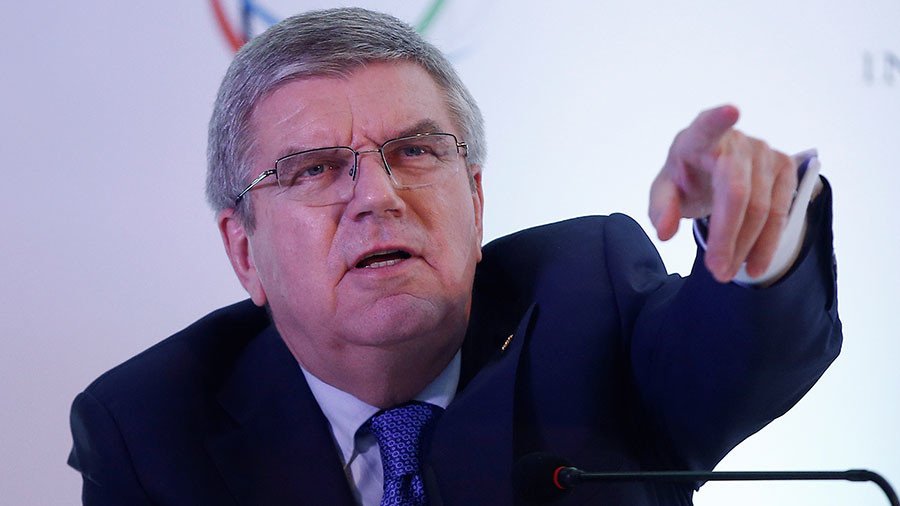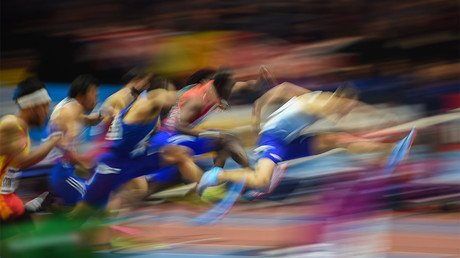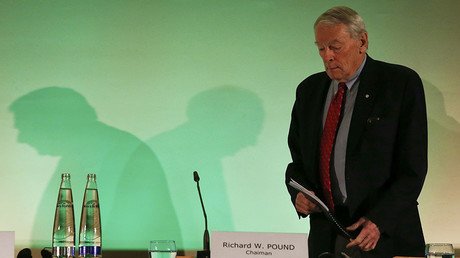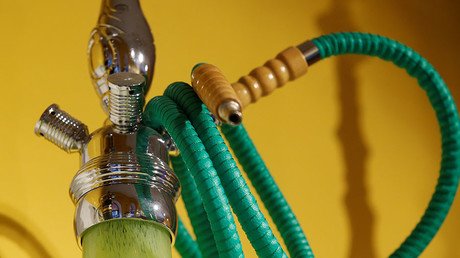IOC to appeal CAS decision on cleared Russian athletes

The International Olympic Committee (IOC) has announced it will appeal the verdict of the Court of Arbitration for Sport (CAS) to clear dozens of Russian athletes of doping charges.
The decision was made on Thursday during the IOC Executive Board meeting in Lausanne, Switzerland, where IOC members agreed to file the appeal with the Swiss Federal Tribunal, AP reports.
“We put ourselves in the shoes of athletes who finished behind these Russian athletes,” IOC President Thomas Bach said.
“It is stated that the CAS decision does not mean these athletes are innocent. They can very well ask us why we did not appeal. If I were one of them I would ask this question. I did not find a good answer.”
"Any athlete could say that any slim chance is worth seizing. This is why we took this decision. We are still looking into the legal details and evaluating the CAS full awards. Regardless of the degree of chances we have, we want this to be clarified and to be reviewed by the Swiss Federal Tribunal in the interest of the athletes," he added.
In February, CAS cleared 28 Russian athletes and dropped lifetime bans imposed by the IOC over alleged doping, stating that the evidence presented by the Olympic governing body was “insufficient” to establish that “an anti-doping rule violation (ADRV) was committed by the athletes.”
The IOC branded the CAS ruling “extremely disappointing,” adding that there was an urgent need for reforms in the structure of the top sport court. Former head of a Moscow anti-doping laboratory Grigory Rodchenkov, whose allegations against Russia provided the basis for the notorious McLaren report, testified in court for the first time, and his evidence was not sufficiently convincing.
Rodchenkov reportedly confused his own evidence while testifying at CAS, admitting that he had never personally seen any Russian athlete doping, and all his accusations were based on the so-called Duchess list compiled by the doctor himself.
READ MORE: ‘Rodchenkov's evidence is hearsay with limited probative value’ – CAS
Last week, CAS published two findings in the matter of 39 Russian athletes accused of doping, describing Rodchenkov's evidence as “hearsay with limited probative value.”
Western media silent as Rodchenkov's Russian doping claims fail to stand up in court https://t.co/QntQS3LaAqpic.twitter.com/0jqW715WJV
— RT (@RT_com) April 28, 2018
By appealing the CAS decision, the IOC undermines one of its basic rules outlined in the Olympic charter, which reads: “The decisions of the IOC, taken on the basis of the provisions of the Olympic Charter, are final. Any dispute relating to their application or interpretation may be resolved solely by the IOC Executive Board and, in certain cases, by arbitration before the Court of Arbitration for Sport (CAS).”
The IOC’s goal is “political rather than legal in nature,” Mathieu Maisonneuve, professor of public law in Beirut, Lebanon, told RT. “It is rather to send a message and make it clear that it stands against these [CAS] rulings which reduced sanctions [against Russian athletes], and that it will fight until the end to see these rulings annulled,” he added.
According to Maisonneuve, the CAS verdicts on the Russian athletes are “perfectly reasoned” and “perfectly documented.”
“It would be very difficult to find any legal arguments against them,” he said, adding that the IOC’s actions “are more symbolic than legal.”
Think your friends would be interested? Share this story!















